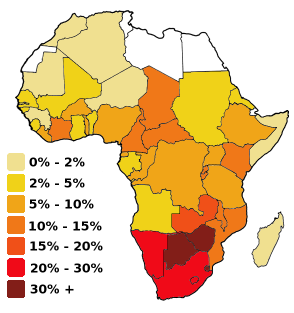Call for Papers: American Indian/Indigenous Film Area
Southwest/Texas Popular & American Culture Associations 30th Anniversary Conference, Albuquerque, NM
February 24-28, 2009
The 2009 WS/TX PCA/ACA Conference will be held in Albuquerque, New Mexico at the Hyatt Regency downtown.
The American Indian/Indigenous Film Area is looking for panels, papers, and workshops on topics related to American Indian, First Nations, and Indigenous film. We welcome proposals from all disciplines that examine, utilize, promote, or teach Native/Indigenous film and media are welcome. The American Indian/Indigenous Film Area is particularly interested in bringing together Native filmmakers and Native/non-Native academics to talk about the burgeoning field of Indigenous Film.
Some topics might include, but are not limited to:
- Native women filmmakers.
- American Indian/Indigenous Film and/or filmmakers.
- New Voices in Native/Indigenous film and media.
- Needs, Access, and Issues in Native/Indigenous film.
- The outcomes/consequences of using Native films across cultural boundaries and in comparison to other cultural approaches.
- Teaching American Indian or Indigenous films as part of a non-American Indian Studies course, such as Humanities, American Studies, or English.
- Disciplinary and cultural politics as they influence how we read Native film.
- American Indians in Hollywood film.
- Approaches to teaching American Indian film.
- Indian and the Western (this could also apply to how Indigenous people globally are positioned as “Indians” in national “Western” genres).
- Effects/impacts of Native representations in film/media on Native and non-Native culture.
- Showcasing new work (if you would like to facilitate a panel that screens new work, please do so).
If you have specific ideas for topics, workshops, or panels that are not listed here, please submit those as well.
Native filmmakers, scholars, teachers, students, professionals, and others are encouraged to participate. Graduate students may wish to submit papers for fellowships and awards. Further information regarding the conference (listing of all areas, hotel, registration, tours, etc) can be found at http://swtxpca.org/documents/130.html. Register early for a discount rate and to reserve space at the conference hotel—rooms fill quickly.
Date and Place: February 24-28, 2009
Hyatt Regency Albuquerque
30 Tijeras
Albuquerque, NM 87102
Phone: 1.505.842.1234
Fax: 1.515.766.6710
Please pass along this call to friends and colleagues.
Deadlines: Priority Submission and Registration: December 1, 2008 Final deadline for Proposals and Panels: Decenber 15, 2008 Final Conference Registration: December 31, 2008 (All participants must be registered by this date).
Please send 100-200 word abstracts to:
M. Elise Marubbio,
Assistant Professor & Director Augsburg Native American Film Series CB 115 Augsburg College
2211 Riverside Avenue
Minneapolis, MN 55454
(612) 330-1523
marubbio@augsburg.edu
Call for Papers: American Indians TodayAbstract/Proposals by 15 December 2008 (Deadline Extension) February 25-28, 2009
Southwest/Texas Popular & American Popular Culture Associations 30th Annual Conference
Albuquerque, NM. February 25-28, 2009
Hyatt Regency Albuquerque
330 Tijeras
Albuquerque, NM 87102
Phone: 1.505.842.1234
Fax: 1.505.766.6710
Panels now forming on topics related to American Indians Today. I am looking for panels or papers that examine the influence that American pop culture has on aspects of contemporary American Indian life ways and vice versa.
American Indian culture is diverse and an examination of the culture, influences, adaptation, and cultural syncretism as it is presented in contemporary America is welcome.
Proposals may examine any aspect of American Indian life ways and pop culture as represented or interpreted in: the arts and performing arts (storytelling, myth, legend, theater, music); poetry; oral tradition; myth; legend; philosophy; sciences, arts; fashion; artifacts; foods; journalism; media (radio, television); photography; cultural, spiritual or identity appropriation; stereotypes; mascots; tribal politics; history; gaming; Indians in the military; activist movements; social influences; reservation, rural and urban influences; languages; assimilation, adaptation, and syncretism; sovereignty, peoplehood and any influence one may observe that has its genesis in American popular culture as adapted by contemporary American Indians.
This year marks our milestone 30th Anniversary! We will mark this accomplishment with our conference theme that celebrates our roots, "Reeling in the Years: 30 Years of Film, TV, and Popular Culture." For this special theme, papers are particularly sought on aspects of film, TV, and popular culture of the last 30 years with an emphasis on the popular culture of 1979.
We are honored to have as our Luncheon Keynote, former New Mexico Governor David Cargo (1967-1971). Among his many accomplishments, Governor Cargo founded the New Mexico Film Commission, the first of its kind nationwide, which brought Hollywood film production to New Mexico. Continuing a tradition of governors who act, David Cargo played roles in several films including The Gatling Gun (1973), Bunny O'Hare (1971), and Up in the Cellar (1971) about a student poet who seduces his college president's wife, daughter, and girlfriend over lost financial aid.
Priority Submission and Registration: December 1, 2008.
Final Submission Deadline: Dec. 15, 2008.
Conference Registration: Dec. 31, 2008 (all participants must be registered by this date!).
Send abstracts and proposals for panels of 100-250 words. Submissions may be directed to me at the address below by 15 December 2008. :
Richard L. Allen, Area Chair
American Indians Today
Cherokee Nation
P.O. Box 948
Tahlequah, Oklahoma 74465
(918) 453- 5466
Email: rallen@cherokee.org
Details regarding the conference (listing of all areas, hotel registration) can be found at http://swtxpca.org/documents/home.html
Use the Search Function at the Top to Find More Articles, Fellowships, Conferences, Indigenous Issues, Book Reviews, and Resources



